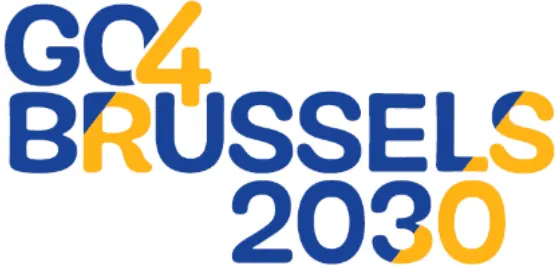Ensuring stable and sustainable work
The Brussels government and the communities jointly commit to stable and sustainable employment for Brussels residents. We have set several priorities for the coming years, including dealing with the impact of the past coronavirus crisis, combating discrimination in hiring and in the workplace and increasing the employment rate and job quality (objective 2.2 _ Region and Communities)
While the unemployment decrease and the employment rise that the Region has experienced for months are encouraging, the Brussels-Capital Region still faces significant challenges in terms of work, mainly due to the COVID-19 crisis and its economic consequences, which we do not yet fully understand. The federal and regional measures taken in recent months have indeed absorbed the shock of this crisis, but the number of jobseekers in Brussels will undoubtedly increase significantly. For this reason, measures have been taken within the framework of the recovery and redevelopment plan approved by the Brussels Government in July.
In addition to this unprecedented crisis, we must continue to work on historical challenges, such as promoting diversity, combating various forms of discrimination, and increasing the level of education, as well as addressing issues related to digitisation, environmental transition, economic transformation, and the challenge of job quality.
The reduction in unemployment must be accompanied by an increase in the employment rate and job quality, which means addressing increasing job insecurity, the burden of work, and social dumping.
The government aims to provide significantly more opportunities for Brussels jobseekers to access quality jobs and fully develop themselves within them. To this end, the government, social partners, and employment and training operators will jointly start with a definition of job quality.
The government will work on integrating jobseekers farthest from the labour market by evaluating and, if necessary, making work-support measures more efficient. Effective discrimination prevention is also required for this integration.
Who is leading the effort?
Shared Priority
- Initiating Minister(s): Minister of Employment and Vocational Training
- Associated Minister(s): Minister-President, Secretary of State for Equal Opportunities, Secretary of State for Economic Transition and Scientific Research
- Partners: Actiris, BEW, Brupartners, Bruxelles Formation, VDAB Brussels, PHARE, local authorities (OCMWs), View.brussels, Observatory of reference prices, Equal.brussels, FeBISP, Tracé Brussels, and FEBRAP
- Steering Committee: Actiris, BEW, Brupartners, Bruxelles Formation, VDAB Brussels, local authorities (OCMWs), View.brussels, Observatory of reference prices, and Equal.brussels
Discover the goals of Go4Brussels 2030
1. Reform paid educational leave and strengthen vocational training
The system of paid educational leave will be reformed in consultation with social partners to make it a fully-fledged permanent training tool that can respond to significant changes in the labour market.
Leading authority: Minister of Employment and Vocational Training.
2. Integration of jobseekers far from the labour market
Facilitate the integration of jobseekers who are far from the labour market:
- Grants for people with disabilities
- Analysis of the recommendations from the evaluation of work support measures.
Leading authority: Minister of Employment and Vocational Training.
3. Monitor quality employment
In consultation with social partners, determine which indicators must be examined and measured so that View.Brussels can permanently monitor the quality of employment.
Repeatedly carry out monitoring of quality employment and regional and sectoral socio-economic monitoring.
Analysis of the results and recommendations.
Leading authority: Minister of Employment and Vocational Training.
4. Combat discrimination in hiring and promote diversity
Improve knowledge of existing instruments to combat discrimination in hiring.
Continue and improve the collaboration between the Regional Labour Inspection, UNIA, and the Institute for the Equality of Women and Men to support the work of the Regional Labour Inspection.
Leading authority: Minister of Employment and Vocational Training, Secretary of State for Equal Opportunities.
5. Combat social dumping in public procurement
Complete the ‘social clauses’ guide based on the recommendations of the activity sectors.
Comply with the circular on including social clauses in Brussels public procurement.
Develop good regional practices to develop new clauses that should allow the combat of social dumping through a sectoral approach.
Leading authority: Observatory of reference prices.
6. Sustain the service voucher sector
Establish a budgetary framework to sustain the service voucher system.
Engage in discussions with the federal government to demand a reduced career for domestic workers and adequate reimbursement of service vouchers for paternity and adoption.
Set up a working group on the working conditions and reskilling of domestic workers in the Economic and Social Council.
Leading authority: Minister of Employment and Vocational Training.
7. Reduce the number of unfilled jobs
Establish an intergovernmental action plan to reduce the number of unfilled jobs.
Evaluate the regulations of work permits for shortage occupations.
Promote less attractive professions. Anticipate companies' labour needs through training and employment centres.
Leading authority: Minister of Employment and Vocational Training.
8. Support initiatives to reconcile work and private life
Analyse the Single Parent Families plan developed as part of S2025 (Go4Brussels 2025) by Brupartners, adapt it if necessary, and implement it. The work on the Single Parent Families plan is ongoing in collaboration with the co-leading authorities.
RHP: Take into account the situation of women in the context of the Recovery Plan and ensure a particular focus on women within single-parent families.
Call for gender projects by associations to promote true equality between women and men after the COVID-19 crisis as part of the Recovery Plan and with an intersectional vision. The call for projects has been launched and closed.
Leading authority: Secretary of State for Equal Opportunities, Brupartners.
9. Rapid integration of new jobseekers
RHP: Enable the rapid integration of new jobseekers affected by the COVID-19 crisis.
- Stimulate the implementation of the insertion job measure as provided for in Article 60, §7, especially for Brussels entrepreneurs affected by bankruptcy.
- Implement the Phoenix premium for jobseekers affected by the COVID-19 crisis.
- Support the creation of self-employment by
- introducing ReloadYourself
- strengthening the self-employed premium.
- Improve the guidance of jobseekers by Actiris and the AAZW partners.
Leading authority: Minister of Employment and Vocational Training.
